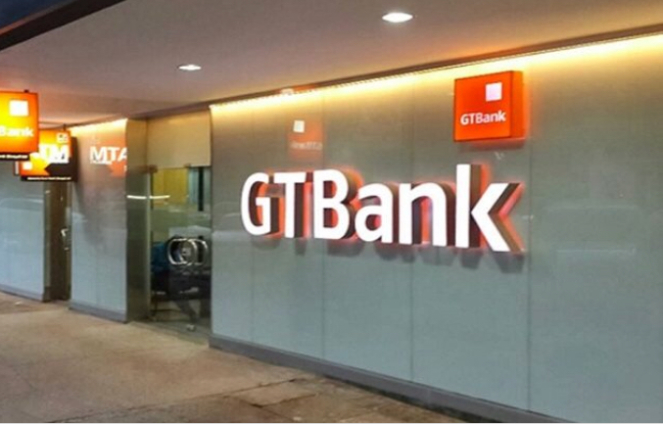Ratings agency, Fitch Ratings has affirmed Guaranty Trust Bank (Ghana) Limited's (GTB Ghana) Long-Term Issuer Default Rating (IDR) at 'B-' with a Stable Outlook.
The bank's Viability Rating (VR) has also been affirmed at 'ccc'.
According to the UK-based firm, GTB Ghana's Long-Term IDR is driven by potential support from its Nigeria-based parent Guaranty Trust Bank Limited (GTB; B-/Stable), as expressed by its Shareholder Support Rating (SSR) of 'b-'.
The Stable Outlook reflects that on GTB's Long-Term IDR. GTB Ghana's Long-Term IDR is at the same level as Ghana's Country Ceiling of 'B-', which captures Fitch's view of transfer and convertibility (T&C) risk within Ghana.
“GTB Ghana's VR of 'ccc' reflects our view that failure remains a real possibility due to high exposure to the Ghanaian sovereign ('RD') through securities. This is despite losses incurred in the sovereign domestic debt restructuring, forthcoming external debt restructuring and impending loan-quality issues being tolerable due to large capital buffers. The VR is one notch below the implied VR of 'ccc+' due to the following constraint: Operating Environment/Sovereign Rating”.
Shareholder Support Rating of 'b-'
Fitch believes GTB has a high propensity to provide support, if required, despite the sovereign default, to preserve its Ghanaian operations due to the attractiveness and contribution of the Ghanaian market to its pan-African strategy, and the reputational implications of a subsidiary default.
However, GTB's ability to provide support is limited by its own creditworthiness. Fitch does not believe the authorities will introduce controls that impede banks in servicing their external debt.
Sovereign Default
Fitch saidGhana's domestic debt-exchange programme (DDEP), which involved exchanging cedi government bonds for new bonds with significantly lower coupons and longer tenors, concluded in February 2023, inflicting large net present value losses on participating bondholders. Ghana recently restructured other domestic debt instruments and is restructuring its external debt.
Problem Loans to Rise
It said macroeconomic conditions will burden borrowers' debt-repayment capacity and lead to increased problem loans.
However, loan-quality risks are diminished by GTB Ghana's small loan book (half-year 2023: 18% of total assets), with broader asset quality being more closely aligned with the sovereign's creditworthiness.
DDEP Pressures Profitability:
It pointed out that operating returns on risk-weighted assets decreased to 5.5% in 2022 (2021: 15.9%) as a result of large impairment charges stemming from the DDEP.
Fitch considers profitability to have been supported by a low discount rate to determine the fair value of the new bonds.
Latest Stories
-
Minerals Commission, Solidaridad unveils forum to tackle child labour in mining sector
4 mins -
Election 2024: Engagement with security services productive – NDC
6 mins -
‘Let’s work together to improve sanitation, promote health outcome’ – Sector Minister urges
7 mins -
Ellembelle MP cuts sod for six-unit classroom block at Nkroful Agric SHS
10 mins -
‘I’ll beat the hell out of you if you misbehave on December 7’ – Achiase Commanding Officer
12 mins -
AFPNC leads the charge on World Prematurity Day 2024
18 mins -
Court remands unemployed man over theft of ECG property
24 mins -
Election security rests solely with the police – Central Regional Police Command
26 mins -
NCCE engages political youth activists at Kumbungu on tolerance
27 mins -
‘In Mahama’s era students lacked chalk, but are now receiving tablets’ – Bawumia
37 mins -
Project commissioning not a ploy to attract votes – Oppong Nkrumah
38 mins -
CBG records GH¢1bn revenue in Q3
41 mins -
Mahama vows to create an agro-processing zone in Afram Plains
55 mins -
Political parties should plan for losses, not just wins – IGP advises
56 mins -
524 Diasporan Africans granted Ghanaian citizenship in ceremony
58 mins

